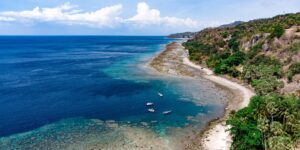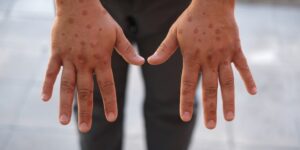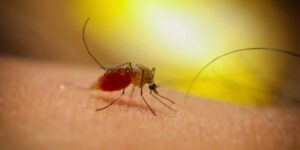Ivory Coast
Ivory Coast, or Côte d’Ivoire, located in West Africa, is a country of stunning tropical beauty. With close links to France it’s one of Africa’s most prosperous countries thanks to its cocoa export industry and foreign investment. Visitors to Ivory Coast are likely to arrive via Abidjan, a coastal city and the country’s unofficial capital. This modern city boasts shiny skyscrapers, an impressive commercial district, and is sometimes referred to as the ‘Manhattan of Africa’. Inland, the city of Yamoussoukro is the official capital of the Ivory Coast – It is home to the largest church in the world, the Basilica of Our Lady of Peace.
Make an online bookingTravel Health Information
Highly recommended
vaccinations for travelling here
Advisory
vaccinations for travelling here
Ivory Coast is considered to be at high risk from a terrorist attack or attacks by local militia groups. Following an attack on a beach near Abidjan in March 2016 in which 18 people were killed, tourists have been urged to the western regions of Ivory Coast bordering Liberia. General crime including car-jacking, muggings and theft is high in the country, especially in Abidjan. If you’re planning a visit here it is recommended to seek specific advice on how to maintain the security of yourself and your possessions. If possible travel as part of an organised group, and especially avoid walking in unfamiliar areas after dark.
Ivory Coast is high risk for malaria and Yellow fever, it is advisable to visit a Travel clinic to get the necessary vaccines, medications and advice before you travel. It is classified as being affected by the Zika virus, for which there is no vaccine. The virus is transmitted by mosquitos. Take precautions to avoid being bitten, and avoid travelling to the country if you are pregnant or planning to become pregnant.
In Abidjan, the country’s unofficial capital and most-visited city, healthcare is of a reasonable standard. There are few hospitals, however, and treatment can be expensive, so ensure that you have adequate insurance in place. If you’re travelling outside of Abidjan, treatment is basic and hard to come by.

Your nearest CityDoc clinic
Find a clinic

Destination Information for Ivory Coast
There are eight national parks in Côte d’Ivoire, which include the single largest protected area in Western Africa, Comoé, found in the North of the country. Comoé is home to an incredible array of wildlife, including lions, leopards, elephants and even aardvarks! Alternatively, take a trip to the Tai National Park, close to the border with Liberia, and see the famous pygmy hippos.
If you’re a sun-seeker, the beaches along the southern coast of the country are simply unbeatable. San Pedro, Assine and Grand Bassam offer white sands, tropical lagoons and a warm welcome to visitors. For most travellers, the most comfortable time to visit Ivory Coast and avoid the stifling heat and torrential rain is during the warm dry season from November to March.
Infections and Outbreaks frequently change from country to country and by attending our clinics you will be given the most up to date clinical and safety advice from our team of specialists. Our advice to you often includes aspects such as:
- Food and water hygiene
- Insect and animal bite avoidances
- Personal safety
- Sexually transmitted infections
- Sun protection
- Altitude sickness
Malaria and regions within country:
There is a high risk of P.Falciparum malaria throughout Ivory Coast and anti-malarial medication is advised.
Travel news
Helpful travel news, tips and advice for travelling around the world

Water Hygiene While Travelling: What You Need to Know
Get the facts straight: Common myths about water hygiene while travelling debunked here.

Mpox- How dangerous is it?
With the recent WHO announcement regarding the outbreak of Mpox in Africa there has been a concern of its transmission to other countries.

Pregnancy and Malaria
A malaria infection can cause complications during the pregnancy to mother and the baby.
For the latest government travel advice
For anyone planning to travel abroad we recommend visiting the following government website for all the latest travel guidance and advice.
Travel health enquiries
For all travel health enquiries, simply contact us below.



